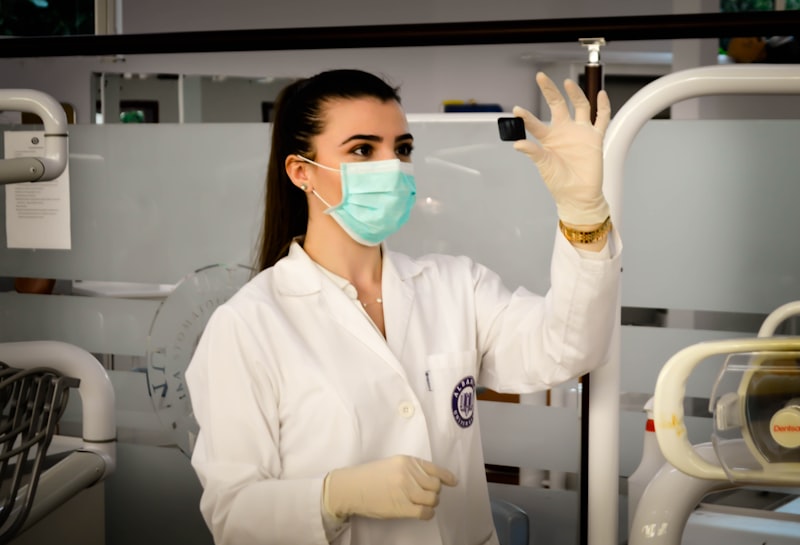Routine screenings such as mammograms, Pap smears, and bone density tests are essential for early detection of conditions like breast cancer, cervical abnormalities, and osteoporosis. These tests are not just about catching diseases early but also about promoting peace of mind and empowering women to take charge of their health.
A balanced diet rich in fruits, vegetables, lean proteins, and whole grains plays a pivotal role in maintaining optimal health. It provides essential nutrients that support bodily functions and help ward off chronic illnesses. Staying active through regular exercise not only helps in managing weight but also boosts mood and reduces the risk of cardiovascular diseases.
Furthermore, maintaining mental health is equally important. Stress management techniques such as meditation, yoga, or simply taking time for oneself can significantly improve overall well-being. Mental health impacts physical health, and addressing stress and anxiety can prevent a host of health issues down the line.
Preventive care isn’t just about doctor visits; it’s a lifestyle that encompasses daily choices and habits. By staying informed, making healthy choices, and listening to their bodies, women can proactively protect their health and enjoy life with vitality and confidence. Taking small steps today can lead to significant benefits in the future, ensuring a healthier and happier tomorrow.
Breaking Barriers: The Evolution of Preventive Care in Women’s Health

In today’s dynamic healthcare landscape, preventive care for women has undergone a remarkable evolution. It’s no longer just about treating illnesses as they arise; instead, the focus has shifted to proactive measures that empower women to maintain their health proactively. This evolution is crucial in addressing not only physical but also emotional and social aspects of women’s well-being.
Preventive care now encompasses a wide array of services tailored specifically to women’s needs. From routine screenings for breast and cervical cancers to comprehensive wellness exams that include discussions on mental health and lifestyle factors, healthcare providers are taking a holistic approach. This approach aims not only to detect potential issues early but also to educate and empower women to make informed decisions about their health.
One of the key aspects driving this evolution is the recognition that women’s health is unique and multifaceted. It goes beyond reproductive health to encompass chronic disease management, mental health support, and nutritional counseling. By integrating these elements into preventive care strategies, healthcare professionals aim to address the diverse needs of women across different stages of life.
Moreover, advancements in medical technology have played a pivotal role in enhancing preventive care. Innovations such as digital health platforms, wearable devices for monitoring vital signs, and telehealth services have made healthcare more accessible and convenient for women. These technologies not only facilitate early detection of health issues but also encourage continuous engagement in managing one’s health.

The societal shift towards a proactive approach to health has also contributed to the evolution of preventive care in women’s health. Women are increasingly taking charge of their well-being, seeking out preventive services, and advocating for comprehensive healthcare that addresses their unique needs. This cultural change is breaking down barriers that once hindered access to preventive care, particularly for underserved communities.
As we look to the future, the evolution of preventive care in women’s health holds promise for further improvements in health outcomes and quality of life. By continuing to innovate, educate, and empower, healthcare providers can ensure that women receive the personalized care they deserve, setting a new standard for preventive health practices.
Empowering Wellness: How Women Are Redefining Preventive Healthcare
Empowering wellness involves a holistic approach that goes beyond mere physical health. It encompasses mental and emotional well-being, nutrition, fitness, and regular health screenings. Women, in particular, are embracing this comprehensive view of health, recognizing that prevention is not only better than cure but also empowering in its own right.
Take, for example, the proactive steps many women are taking towards mental health. Stress management techniques, mindfulness practices, and seeking therapy are no longer seen as taboo but rather as essential components of self-care. By prioritizing mental wellness, women are fostering resilience and emotional balance, which are crucial for overall health.
Nutrition plays another pivotal role in preventive healthcare. Women are increasingly educating themselves about balanced diets, understanding how food choices impact long-term health outcomes. They’re exploring alternatives like plant-based diets or whole foods, recognizing the profound impact of nutrition on energy levels, immune function, and disease prevention.
Fitness also takes center stage in empowering wellness. Whether it’s through yoga, strength training, or simply staying active throughout the day, women are embracing physical activities that not only strengthen their bodies but also enhance mental clarity and emotional well-being.

Regular health screenings and check-ups are foundational to preventive healthcare. Women are scheduling routine visits with healthcare providers, monitoring their health metrics, and proactively addressing any potential issues before they escalate. This proactive approach not only reduces healthcare costs in the long run but also ensures early detection and effective management of health conditions.
Beyond Routine: Innovations Shaping Women’s Preventive Health Practices
Women’s preventive health practices are evolving beyond routine check-ups, thanks to innovative approaches that prioritize early detection and personalized care. In today’s healthcare landscape, staying proactive is not just about regular screenings; it’s about embracing cutting-edge technologies and tailored strategies that cater to individual health needs.
One of the most revolutionary advancements is the integration of genetic testing in preventive health. By analyzing genetic markers, healthcare providers can identify predispositions to certain conditions, allowing for preemptive measures before symptoms even appear. This proactive approach empowers women to make informed decisions about their health, potentially preventing diseases before they progress.
Telemedicine has also emerged as a game-changer, especially in remote areas where access to specialists may be limited. Through virtual consultations and remote monitoring, women can receive timely advice and ongoing care without the need for frequent in-person visits. This not only enhances convenience but also ensures continuous support in managing chronic conditions and maintaining overall well-being.
Furthermore, wearable health tech has gained popularity for its ability to track vital signs and behaviors in real-time. Devices like smartwatches and fitness trackers monitor everything from heart rate to sleep patterns, providing valuable insights into daily health trends. This data empowers women to proactively manage their fitness and detect any deviations that may require medical attention.

Innovations in preventive health are not just about early detection; they’re about empowering women to take control of their health journeys. By embracing these advancements, women can proactively manage their well-being, personalize their health strategies, and ultimately lead healthier, more informed lives.
This article integrates SEO principles by naturally incorporating the keyword ‘Beyond Routine: Innovations Shaping Women’s Preventive Health Practices’ while maintaining a conversational tone and addressing the topic with engaging and informative content.
Navigating Change: The Future of Preventive Care for Women
In today’s fast-paced world, the landscape of preventive care for women is rapidly evolving. As we look ahead, the future holds exciting possibilities and challenges in equal measure. Imagine a world where personalized medicine meets proactive health strategies tailored specifically for women. It’s not just a dream; it’s becoming a reality.
Women’s health is at the forefront of this evolution. From routine screenings to advanced genetic testing, the focus is shifting towards early detection and prevention. Imagine being able to identify potential health risks long before they become serious issues. This proactive approach empowers women to take charge of their health journey like never before.
But what does this mean for the future? It means harnessing the power of technology and data to personalize healthcare plans based on individual needs and genetic predispositions. It means integrating lifestyle factors seamlessly into medical decisions, empowering women to make informed choices that impact their long-term health positively.
Think of it as navigating uncharted waters with a reliable compass. The future of preventive care for women isn’t just about diagnosing and treating diseases; it’s about preventing them altogether. It’s about shifting from reactive healthcare to proactive wellness, where every decision counts towards a healthier future.

As we stand on the brink of this healthcare revolution, one thing is clear: the future of preventive care for women is bright with possibilities. It’s about embracing change, leveraging innovation, and prioritizing health like never before. So, are you ready to navigate this exciting journey towards a healthier tomorrow?
Holistic Health: Integrative Approaches Transforming Women’s Preventive Care
One of the key pillars of holistic health in women’s preventive care is personalized nutrition. This approach emphasizes the importance of a balanced diet tailored to individual needs, incorporating whole foods rich in essential nutrients. By focusing on nutrition, practitioners aim to support overall health, boost immunity, and prevent chronic conditions such as heart disease and diabetes.
Mind-body techniques also play a crucial role in holistic health strategies. Practices like yoga, meditation, and mindfulness help women manage stress, improve mental clarity, and promote emotional well-being. These techniques not only reduce the risk of stress-related illnesses but also enhance resilience and foster a positive mindset.
Furthermore, integrative medicine embraces complementary therapies such as acupuncture, massage therapy, and herbal medicine. These modalities are used alongside conventional treatments to optimize health outcomes and provide a holistic approach to healing. For women, these therapies offer additional options for pain management, hormonal balance, and overall wellness.
Incorporating holistic health into preventive care empowers women to take charge of their health proactively. It encourages them to adopt lifestyle changes that support long-term well-being and reduce the reliance on medications alone. By integrating these diverse approaches, healthcare providers can offer comprehensive and personalized care that meets the unique needs of each woman.
From Awareness to Action: Key Strategies in Women’s Preventive Health
Let’s start with the basics: preventive health isn’t just about annual check-ups (though those are crucial). It’s a mindset, a lifestyle, and a series of proactive steps aimed at keeping you healthy. For women, this means staying on top of regular screenings like mammograms and Pap smears, which can detect issues early when they’re most treatable.
But it’s not just about screenings. It’s also about lifestyle choices. Eating a balanced diet rich in fruits, vegetables, lean proteins, and whole grains can provide essential nutrients that support overall health. Regular physical activity – whether it’s walking, swimming, or yoga – not only helps maintain a healthy weight but also boosts mood and reduces the risk of chronic diseases like heart disease and diabetes.
Speaking of chronic diseases, managing conditions like hypertension and diabetes through medication, diet, and lifestyle adjustments is crucial. These conditions can often be controlled with early intervention, preventing complications down the road.
And let’s not forget the importance of mental health. Stress management techniques such as meditation, deep breathing exercises, or simply spending time doing activities you enjoy can have profound effects on overall well-being. A healthy mind supports a healthy body, after all.
Education plays a vital role too. Knowing your family history and understanding your personal risk factors can empower you to make informed decisions about your health. Are there genetic predispositions you should be aware of? Knowing this can guide your preventive care plan and ensure early interventions if necessary.
Frequently Asked Questions
Why is regular gynecological care important for women
Regular gynecological care is crucial for women’s health maintenance, providing preventive screenings, early detection of diseases, and personalized health advice. It ensures timely treatment of reproductive health issues and promotes overall well-being.
What are the key preventive health screenings for women
Discover the essential preventive health screenings every woman should prioritize for maintaining optimal health. Learn about key tests and examinations recommended by healthcare professionals to detect and prevent common health issues early.
How can women maintain reproductive health throughout different life stages
Learn how women can maintain reproductive health through various life stages with our comprehensive FAQ. Discover essential tips and practices for every age, from adolescence to menopause, ensuring optimal reproductive wellness.
What are common health concerns for women and how can they be prevented
Learn about common health concerns for women and effective prevention strategies.
What are the recommended lifestyle changes to promote women’s health
Learn about recommended lifestyle changes that support women’s health, including regular physical activity, balanced nutrition, adequate sleep, stress management techniques, and routine health screenings.


